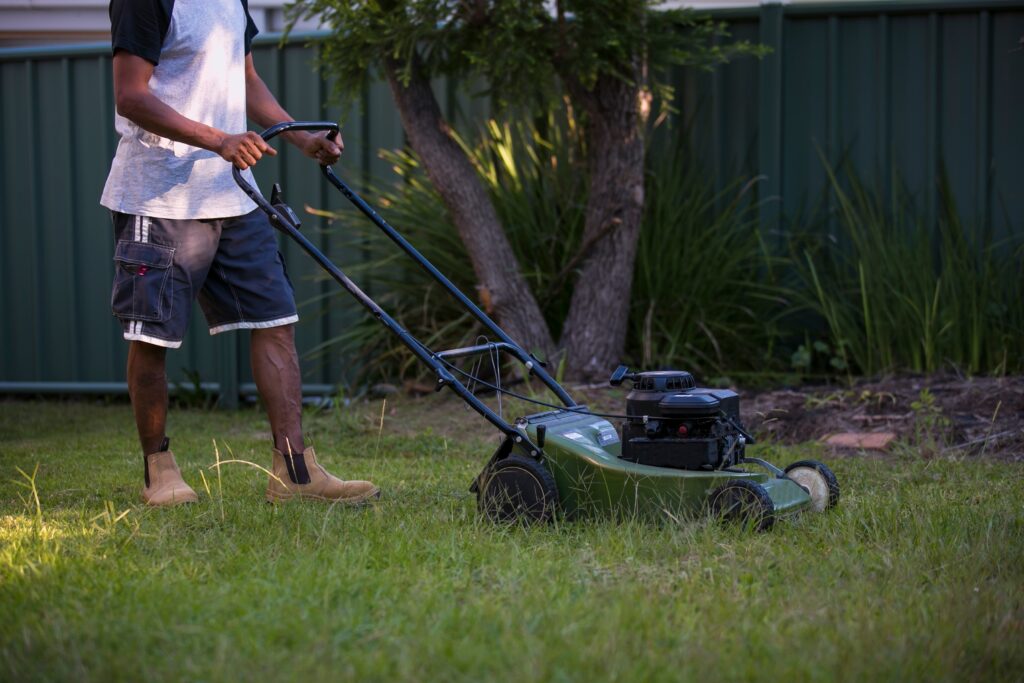
Loud tenants? Here’s how to handle them
We’ve all been there—drifting off to sleep when suddenly boom, your neighbour decides it’s the perfect time to start a drum solo, host an impromptu karaoke, or let their dog audition for “Barking Idol.” Noisy tenants can quickly turn your peaceful home into a battleground of frustration.
While a bit of noise is a normal part of community living, excessive or ongoing disruptions can interfere with your right to enjoy your property in peace.
The tricky part? Knowing who to turn to for help and what steps you can actually take.
Well, luckily for you, you’ve got options, and we’re here to walk you through them.
What counts as ‘too loud’?

Let’s face it—everyone’s idea of “too loud” is different. Some people can sleep through a thunderstorm, while others are woken up by a creaky floorboard. But when it comes to rental properties, there’s a clear line between everyday living noise and disruptive behaviour.
Generally, normal household noise includes things like:
- Occasional dinner parties – a bit of laughter and music within reasonable hours.
- Kids playing – because let’s be honest, silence and children don’t mix.
- DIY projects – as long as they don’t turn into full-scale renovations at 6 AM.
However, noise becomes a problem when it’s:
- Excessive or persistent, such as loud parties or music at all hours.
- Disruptive to neighbours, like shouting matches that echo down the street.
- Unreasonable, including ongoing barking dogs or power tools used at odd hours.
Under the Residential Tenancies Act 1987 (WA), tenants are required to avoid interfering with the peace, comfort, and privacy of their neighbours. On top of that, local councils have their own noise regulations, which usually cover things like:
- Times for operating noisy equipment
- Volume limits for music and parties
- Pet noise
- Restrictions on commercial or industrial noise in residential areas
Since council regulations can vary depending on your location, it’s always worth checking with your local council to see what’s considered “unreasonable noise” in your area.
Your first steps: DIY conflict resolution
Before you start drafting noise complaint letters or dreaming of soundproof walls, it’s worth trying a good old-fashioned chat with your noisy tenant or neighbour.
Sometimes, people don’t even realise they’re being disruptive (yes, even the ones who think karaoke at midnight is a good idea). A calm, friendly conversation can go a long way in resolving the issue without unnecessary drama.
Here’s how to approach it:
- Pick the right time – Catch them in a relaxed moment, not mid-party or during their morning rush.
- Stay friendly and polite – A little kindness goes a long way. Let them know how the noise is affecting you without pointing fingers.
- Offer a compromise – Suggest reasonable adjustments, like keeping the volume down after a certain hour.
- Put it in writing – If face-to-face isn’t your style (which is perfectly fine), a polite note or email can help get your message across without confrontation.
If a friendly chat doesn’t hit the right note, you might want to consider mediation services. Mediation brings in a neutral third party to help both sides reach a fair solution without escalating things further.
Some useful options include:
- Your local council
- Legal Aid WA
- Community mediation services
Taking these steps first can help you avoid unnecessary stress (and keep things civil), but if the noise persists, it might be time to explore more official avenues.
When DIY solutions fail: reporting excessive noise properly
So, you’ve tried the friendly chat, the polite note, and maybe even a batch of muffins—yet the noise persists. When all else fails, it’s time to bring in the professionals. Depending on the type and severity of the noise, different authorities can step in to help restore your peace and quiet.
1. When to involve your property manager (hint: that’s us!)
If you have a property manager, they should be your first point of contact for handling noise complaints. A good property manager will liaise with tenants, issue formal warnings, and take appropriate action to resolve the issue—saving you the stress of dealing with it yourself.
If you’re managing the property privately, the responsibility falls on you to navigate tenancy laws, council regulations, and those awkward conversations with tenants. Unfortunately, we can’t swoop in and fix things if we’re not already managing your property—but the good news? If you’re tired of handling these issues solo, we’re here to take the reins moving forward.
For our clients, we:
- Contact tenants directly and issue formal warnings.
- Work with councils and authorities on your behalf.
- Ensure all processes are followed legally and efficiently.
So, if you’d rather leave the stress of tenant management to the pros, we’ve got you covered.
2. Making a noise complaint
If the noise is ongoing and unreasonable, your local council is usually the best place to start (if you’re doing this solo). You can submit a noise complaint, which allows the council to investigate and determine if the noise exceeds legal limits under local regulations.
If you’re ready to lodge this, here’s what you should do:
- Keep a record – Note the dates, times, and nature of the noise to support your complaint.
- Contact your local council – They’ll usually provide a complaint form and may investigate the issue.
- Be prepared for sound level monitoring – In some cases, council officers may visit your property to measure noise levels.
Each council has different processes, so check their website or give them a call to understand their specific requirements.
3. When to call the police

If the noise involves immediate disturbances—like rowdy parties, aggressive confrontations, or suspected illegal activity—the police may need to get involved. They can step in for situations such as:
- Excessive noise from parties or gatherings that escalate late into the night.
- Noise combined with antisocial behaviour, such as shouting, fighting, or public disturbances.
- Suspected illegal activity, such as drug use or dangerous behaviour occurring on the property.
For non-emergency noise complaints, you can contact WA Police on 131 444. But if things get out of hand and pose a risk to safety, don’t hesitate to dial 000 in an emergency.
Knowing your rights (and theirs)
In Western Australia, tenants are entitled to what’s called quiet enjoyment of their rental property. But don’t let the name fool you—this doesn’t mean living in complete silence. Instead, it refers to the tenant’s right to privacy and freedom from unnecessary interference by the landlord.
On the flip side, tenants also have responsibilities under the Residential Tenancies Act 1987 (WA), which means they must:
- Avoid creating excessive noise that interferes with neighbours’ peace and comfort.
- Ensure guests follow the same rules.
- Respect council noise regulations, like acceptable hours for loud activities.
If a tenant is consistently breaching these responsibilities, landlords have the right to take action, whether that means issuing formal warnings, breach notices, or even applying for termination of the lease in extreme cases.
However, it’s essential to make sure you’re following the correct procedures to avoid potential disputes or legal hiccups. That’s where professional property management (like us!) can step in to handle the nitty-gritty, ensuring everything is done by the book.
Leave the noise to us
Dealing with noisy tenants can be frustrating, time-consuming, and—let’s be honest—not exactly how you’d like to spend your weekends.
While you can try a friendly chat or go down the formal complaint route, having a professional property manager in your corner makes all the difference. At Semple Property Group, we take care of everything—from communicating with tenants to handling council regulations—so you don’t have to.
If you’re looking for stress-free property management in Perth, let us handle the tough conversations and keep your investment running smoothly (and quietly).
Get in touch with us today and enjoy the peace of mind you deserve.
Related Articles

Where to change addresses when moving house

Where to eat in Perth - our top picks


